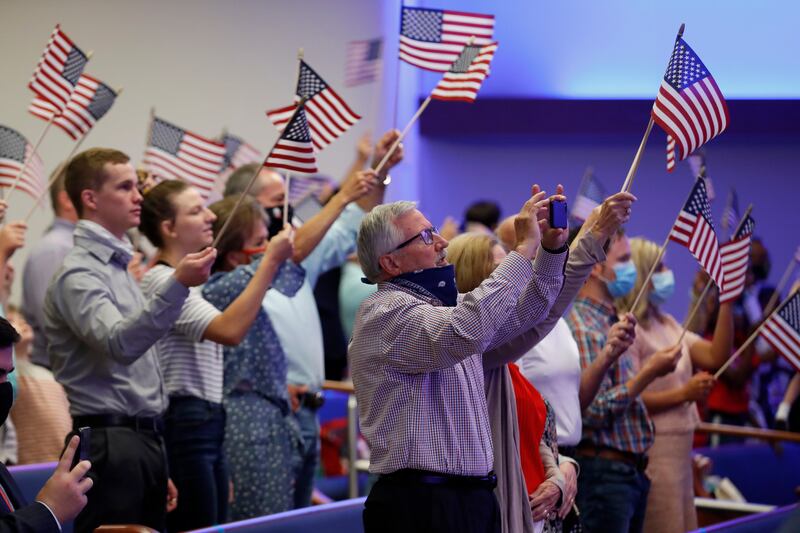This article was first published in the State of Faith newsletter. Sign up to receive the newsletter in your inbox each Monday night.
As a prominent religion scholar and practicing Christian, Richard Mouw is often asked to explain people of faith’s behavior in the public square.
More specifically, he is asked why his fellow evangelicals seem so mean, especially compared to other religious voters.
“A couple months ago, I was interviewed by a journalist ... who asked, ‘Why is it that (Latter-day Saints) in public life are a lot nicer than evangelicals?’” Mouw recounted during a Nov. 4 Trinity Forum event titled “How To Be a Patriotic Christian.”
He told event participants the same thing he told the journalist: that evangelical Christians lash out due to anxiety about religious and political change. In the past, evangelical Christians had more power than they do today.
“We evangelical types, we once felt like we owned the table. We got to decide who got in. ... Today, they took the table away from us. They, meaning the secularists and others. We don’t own the table anymore,” said Mouw, who is president emeritus of Fuller Theological Seminary.
Other faith groups are less sensitive about recent shifts because they’re used to fighting for their voice to be heard, he added.
“Mormons have never owned the table. They’re content just to be a part of the table. Just to be there,” Mouw said, noting that he came to the same conclusion recently after meeting with a Jewish and Muslim leader.
Mouw and his conversation partner, Paul Miller, went on to discuss why it’s important for evangelicals — and all Americans — to make room for more seats at the metaphorical table even when it means diluting the power of their own voice (or vote).
“This idea of owning the table ... I don’t know if it’s consistent with the golden rule. If we were to do unto others, we ought to welcome everyone to the table as a co-equal owner of the table, not act like we’re the rightful owners,” said Miller, author of “The Religion of American Greatness: What’s Wrong with Christian Nationalism.”
When it comes to Christian engagement in politics, the true danger is ignoring valuable voices, not losing your own power, Mouw said.
A recording of the “How To Be a Patriotic Christian” event is available online.
Fresh off the press
How a G League team is accommodating its first Sabbath-observing player
The Kyrie Irving antisemitism controversy, explained
Do Republicans and Democrats still want to worship together?
How the sports world is tackling antisemitism
Term of the week: zendo
A zendo is a meditation hall or room. It’s a key gathering place for practitioners of Zen Buddhism.
I stumbled upon the term this week in a fascinating Associated Press article on Buddhists in Alaska.
What I’m reading ...
Rabbi A. James Rudin worked so hard to build bridges between Jews and Catholics throughout his career that he’s getting knighted by the pope. Religion News Service shared a bit of his remarkable story last week.
You’ve probably heard of someone planning their own funeral, but what about building their own coffin? That’s a growing trend, according to The Wall Street Journal, which highlighted a church in Massachusetts that hosted a coffin-building workshop.
Christianity Today recently studied a list of every polling place in the United States. Guess what it learned? Fully 1 in 5 polling places are in churches.
Odds and ends
If you aren’t burned out on politics talk after the midterm elections, check out Georgetown University’s Nov. 17 election roundtable, titled “Faith and the Faithful in the 2022 Midterm Elections.” Panelists will discuss the role religious voters played in the election and key issues to watch in the coming months.


